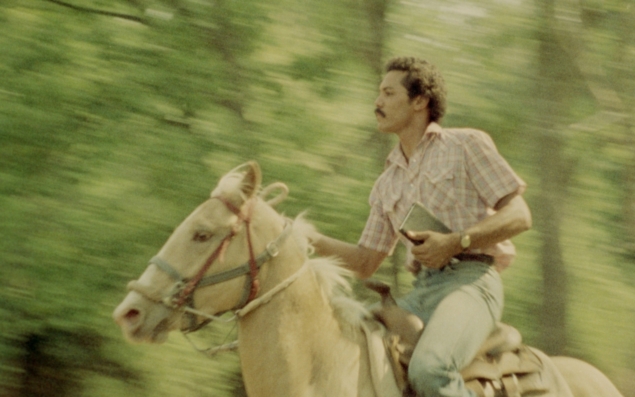A story of forbidden love burdened by a terrible past, believed to have been lost for 20 years. Russian premiere as part of the retrospective programme of the Festival of Singular Films.
Cane River
- Date:
- 29 Sep 2024,
13:00–14:45
- Age restrictions
- 18+
1982, Horace B. Jenkins
United States
104 minutes, English with Russian subtitles
Starring: Richard Romain, Tommye Myrick, Carol Sutton, Barbara Tasker
Peter is a handsome young man who has just returned to his native Cane River after graduating from college. Despite his clear talent, he has given up a professional career in American football: poetry and literature are more important to him than sports. The slender and graceful Maria from a neighbouring town is only preparing to go to college, and in the meantime works as a part-time guide in the museum which used to be the local plantation. Peter and Maria can’t take their eyes off each other—but everything seems to be against their romance. Peter has almost white skin, Creole roots, and is from an established Catholic family of landowners (and former slave owners). Maria is much darker, descended from African Baptist slaves, with no dowry or social capital.

Shot from Cane River, 1982
Cane River invites a rethinking of American film history, and also, in its disarmingly offhand, uniquely charming manner—of other aspects of American history as well.
— A. O. Scott, The New York Times
The plot of Cane River sounds like a typical Romeo and Juliet scenario, but Horace Jenkins has little interest in dramas. Instead of moving from crisis to crisis, his movie chooses a trajectory from revelation to revelation. With a light, delicate intonation, the film reveals new layers of meaning with each scene, from the memory of slavery that permeates every metre of Louisiana land to colourism—discrimination by skin tone among African Americans.
Horace Jenkins died at 41 and only saw one screening of his only movie. For the next 20 years, Cane River was considered to be lost until the negative was discovered in the vaults of a New York recording studio. This was an incredible find: shot in Louisiana, Jenkins’ debut became the missing link in the history of African-American independent cinema, connecting the California-based L.A. Rebellion movement with New York debutants of the 1980s such as Spike Lee. But even outside the context of black cinema, the film is of great value and may be seen as an American response to the works by Éric Rohmer.
The screening will begin with a brief speech by the curator in Russian. If you require interpretation into English, please request it at least three days in advance by emailing international@ges-2.org.

